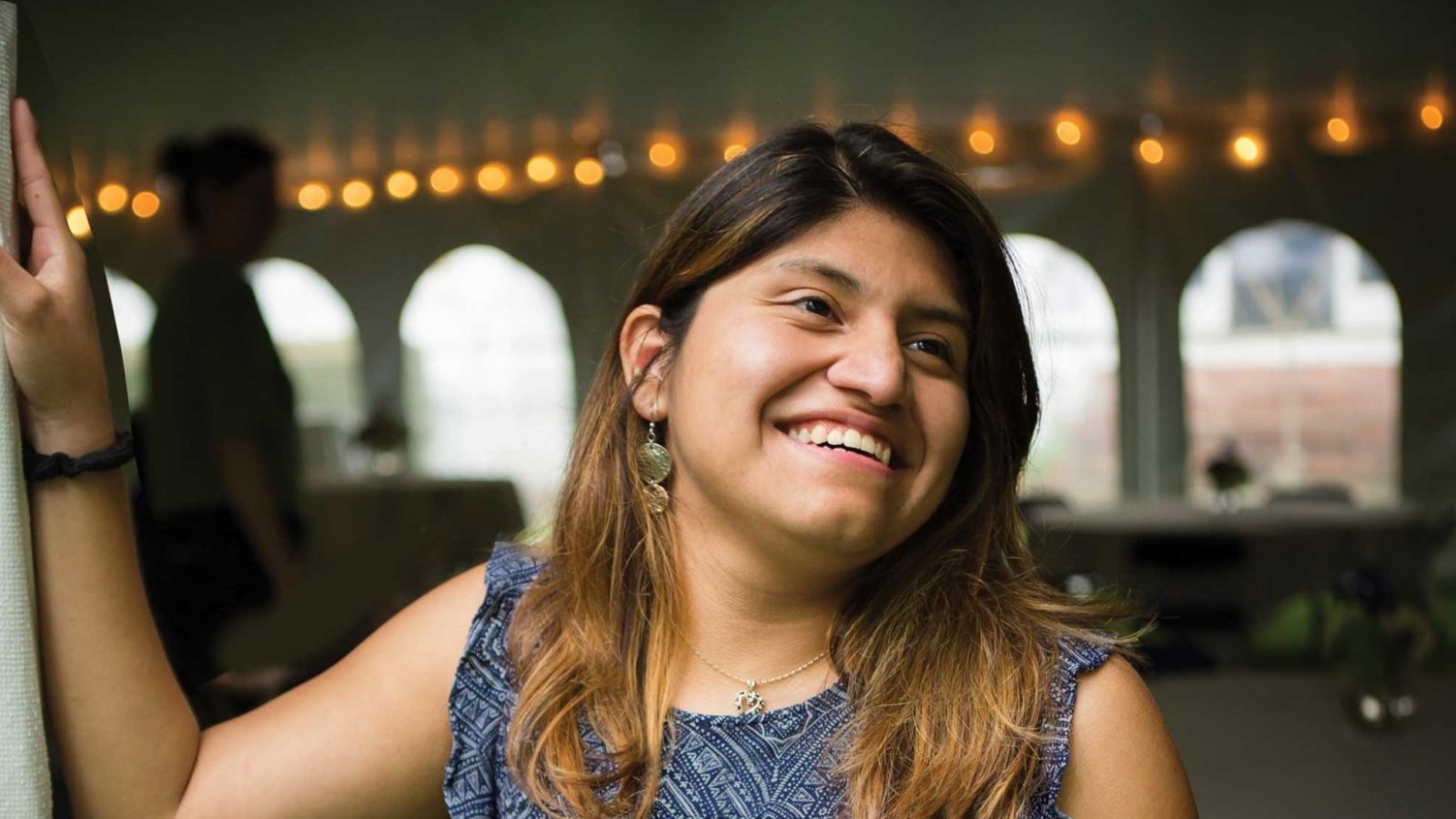The daughter of Peruvian immigrants is setting her sights on teaching
Debbie Andres knew she wanted to attend a boarding school, but she wasn’t sure which one. She teamed up with a program called NJ SEEDS, which helps connect high-achieving students from low-income backgrounds with the nation’s finest schools. Williston won her over, and inspired by the teachers she met in Easthampton, she’s now a teacher herself. She completed a five-year program at Rutgers University, earning her master’s in education, and teaches physics at Paramus High School in New Jersey.
What made you so academically driven?
My parents have always pushed me to do the best I can. My parents are from Peru. They didn’t get as much education as they would have liked. They knew we had a lot of opportunities to do whatever was possible. I was always very interested in learning. It wasn’t really anything they could help me with because they were still trying to get adjusted to the culture. I told them that there are these amazing high schools out there, and I want to go to boarding school. They did not like the idea, but they knew that was the best thing that could happen for me.
I filled out the parent questionnaire, I filled out the financial aid package, and I organized the interviews.
How did it feel to be a woman of color on campus?
I was very self-conscious. I felt like I had to perform all the time. I could not slack. I felt like I was representing my culture. I walked into English class my freshman year and I was one of 12. First of all, I thought that was crazy because I came from a town where we had 20 to 30 people per class. I was the only Hispanic person in that class. My middle school was all Spanish. I knew Williston was predominantly upper-middle-class students and mostly students from Caucasian backgrounds. I didn’t know how much I would stick out because I’m Hispanic. I was scared. I did notice that there were opportunities that other kids had in their lives that I didn’t have. I felt like I had to catch up. Money was never an issue for me. If I wanted to take an SAT course, the financial aid office was really great. I tried to limit as much as possible how much I asked my parents for money. This was my decision, and I know that they had a lot of other hardships to worry about. I got a summer job after my first year to pay for any of the fees.
What teacher had the most impact on you?
I had a really good teacher, Ara Brown, who was a minority himself, and he knew the transitions for minority students were difficult. He had these little gatherings with pizza. When you go to a school as amazing as Williston, it’s really hard to go home. So it was important for us to ground ourselves. He had gatherings where we could talk about these issues. It really helped knowing I wasn’t alone in the world in regards to being a minority student.
What do you remember about your graduation day?
For graduation, my parents came. Three of my siblings came. My niece and nephew and my brother came. It was probably a party of 10. I remember Ms. Brousseau from the athletic department said my family was the rowdiest, proudest people she had seen at graduation.
Why did you decide to become a teacher?
I was set on being an engineer, and then the possibility of being a teacher came up. A lot of the credit goes to the people at Williston who had so much impact on me and pushed me to be the best I could, and realizing that I could be that person for somebody else.

